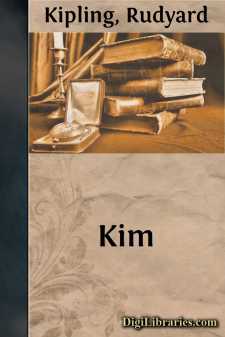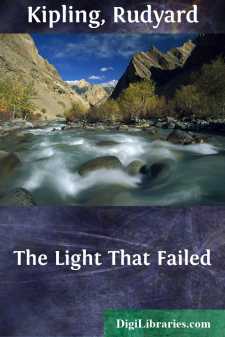Categories
- Antiques & Collectibles 13
- Architecture 36
- Art 48
- Bibles 22
- Biography & Autobiography 813
- Body, Mind & Spirit 141
- Business & Economics 28
- Children's Books 12
- Children's Fiction 9
- Computers 4
- Cooking 94
- Crafts & Hobbies 4
- Drama 346
- Education 46
- Family & Relationships 57
- Fiction 11826
- Games 19
- Gardening 17
- Health & Fitness 34
- History 1377
- House & Home 1
- Humor 147
- Juvenile Fiction 1873
- Juvenile Nonfiction 202
- Language Arts & Disciplines 88
- Law 16
- Literary Collections 686
- Literary Criticism 179
- Mathematics 13
- Medical 41
- Music 40
- Nature 179
- Non-Classifiable 1768
- Performing Arts 7
- Periodicals 1453
- Philosophy 64
- Photography 2
- Poetry 896
- Political Science 203
- Psychology 42
- Reference 154
- Religion 513
- Science 126
- Self-Help 83
- Social Science 81
- Sports & Recreation 34
- Study Aids 3
- Technology & Engineering 59
- Transportation 23
- Travel 463
- True Crime 29
The Man Who Would Be King
by: Rudyard Kipling
Description:
Excerpt
The Law, as quoted, lays down a fair conduct of life, and one not easy to follow. I have been fellow to a beggar again and again under circumstances which prevented either of us finding out whether the other was worthy. I have still to be brother to a Prince, though I once came near to kinship with what might have been a veritable King and was promised the reversion of a Kingdom — army, law-courts, revenue and policy all complete. But, to-day, I greatly fear that my King is dead, and if I want a crown I must go and hunt it for myself.
The beginning of everything was in a railway train upon the road to Mhow from Ajmir. There had been a deficit in the Budget, which necessitated travelling, not Second-class, which is only half as dear as First-class, but by Intermediate, which is very awful indeed. There are no cushions in the Intermediate class, and the population are either Intermediate, which is Eurasian, or native, which for a long night journey is nasty; or Loafer, which is amusing though intoxicated. Intermediates do not patronize refreshment-rooms. They carry their food in bundles and pots, and buy sweets from the native sweetmeat-sellers, and drink the roadside water. That is why in the hot weather Intermediates are taken out of the carriages dead, and in all weathers are most properly looked down upon.
My particular Intermediate happened to be empty till I reached Nasirabad, when a huge gentleman in shirt-sleeves entered, and, following the custom of Intermediates, passed the time of day. He was a wanderer and a vagabond like myself, but with an educated taste for whiskey. He told tales of things he had seen and done, of out-of-the-way corners of the Empire into which he had penetrated, and of adventures in which he risked his life for a few days’ food. “If India was filled with men like you and me, not knowing more than the crows where they’d get their next day’s rations, it isn’t seventy millions of revenue the land would be paying — it’s seven hundred million,” said he; and as I looked at his mouth and chin I was disposed to agree with him. We talked politics — the politics of Loaferdom that sees things from the underside where the lath and plaster is not smoothed off — and we talked postal arrangements because my friend wanted to send a telegram back from the next station to Ajmir, which is the turning-off place from the Bombay to the Mhow line as you travel westward. My friend had no money beyond eight annas which he wanted for dinner, and I had no money at all, owing to the hitch in the Budget before mentioned. Further, I was going into a wilderness where, though I should resume touch with the Treasury, there were no telegraph offices. I was, therefore, unable to help him in any way.
“We might threaten a Station-master, and make him send a wire on tick,” said my friend, “but that’d mean inquiries for you and for me, and I’ve got my hands full these days. Did you say you are travelling back along this line within any days?”
“Within ten,” I said.
“Can’t you make it eight?” said he. “Mine is rather urgent business.”
“I can send your telegram within ten days if that will serve you,” I said.
“I couldn’t trust the wire to fetch him now I think of it. It’s this way. He leaves Delhi on the 23d for Bombay. That means he’ll be running through Ajmir about the night of the 23d.”
“But I’m going into the Indian Desert,” I explained.
“Well and good,” said he. “You’ll be changing at Marwar Junction to get into Jodhpore territory — you must do that — and he’ll be coming through Marwar Junction in the early morning of the 24th by the Bombay Mail....












